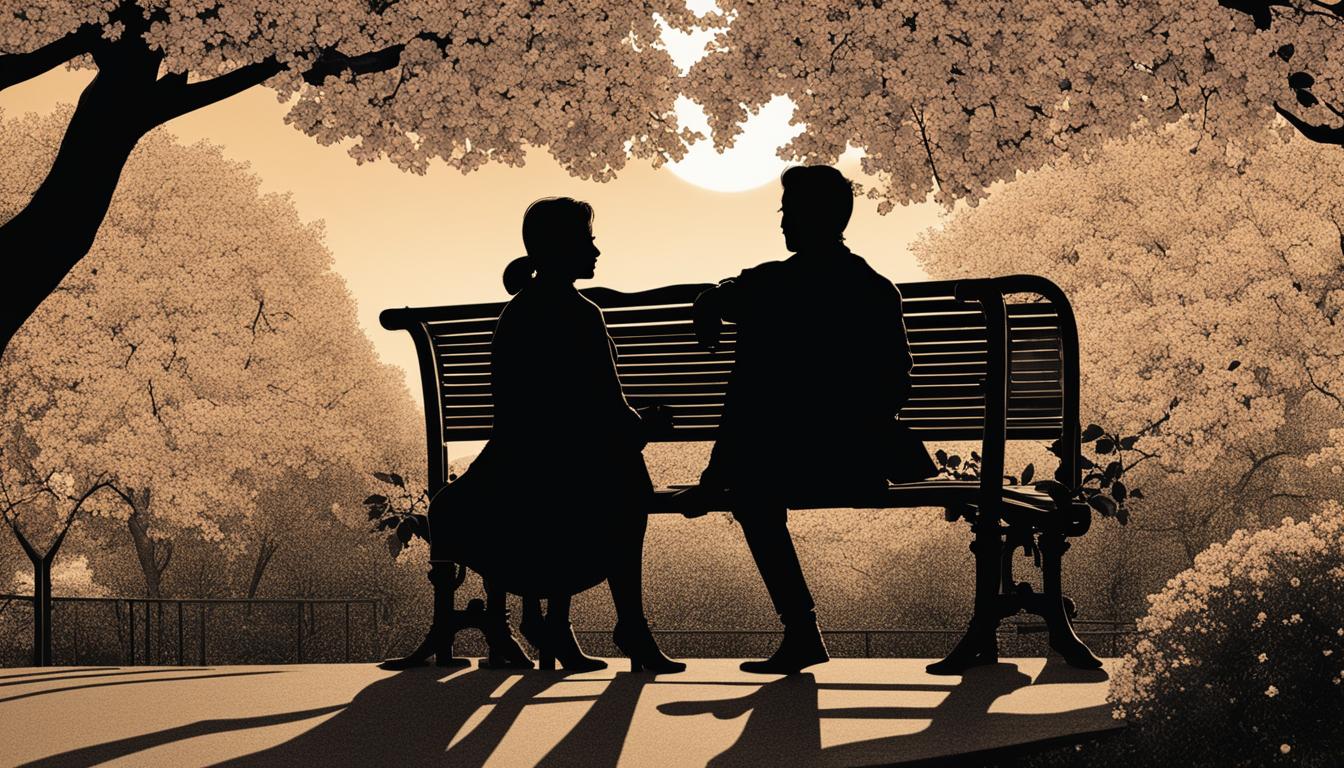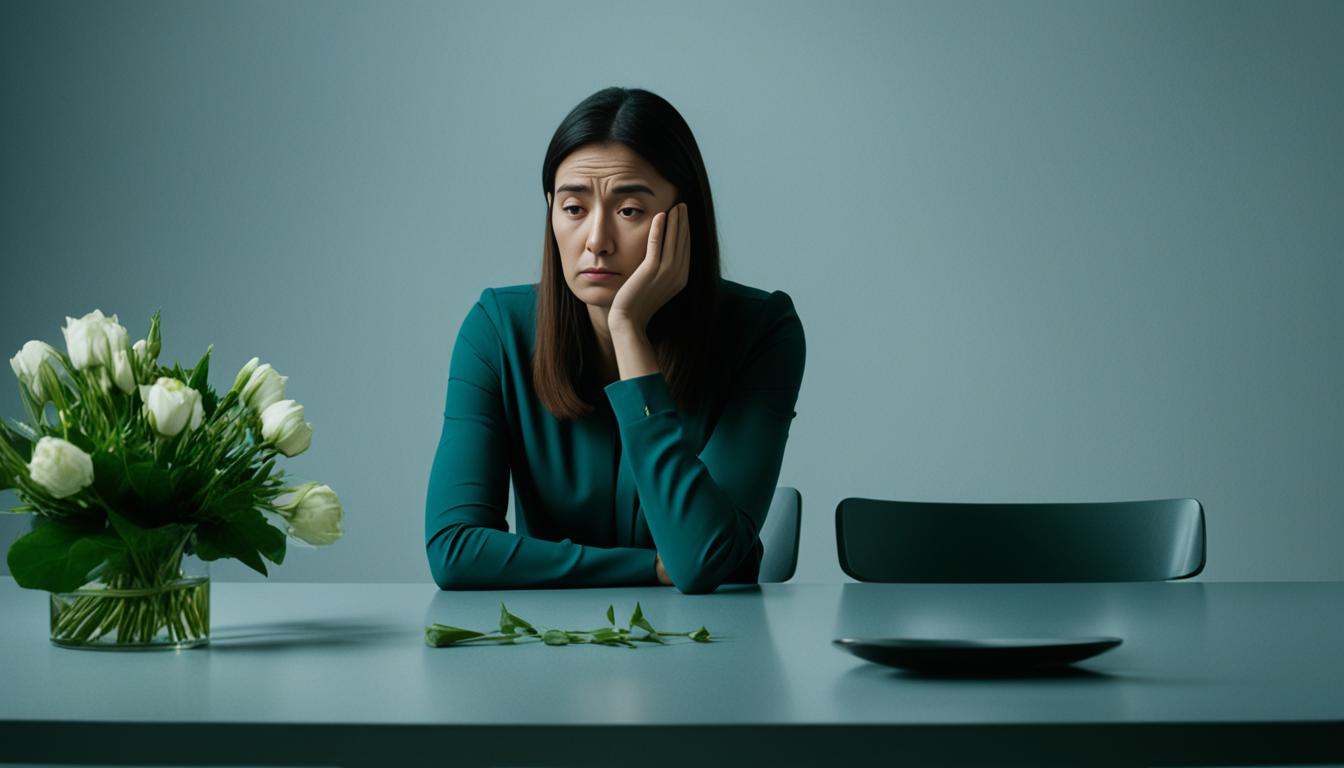Feeling unloved in your marriage can be an incredibly challenging and painful experience. It can leave you questioning your self-worth and wondering what went wrong. If you find yourself in a situation where you feel like your husband doesn’t love you anymore, it’s important to remember that you are not alone. Many individuals go through this struggle, and there are steps you can take to address the issue and rebuild your relationship.
There can be various signs that indicate your husband may not be feeling the same level of love and affection towards you. It could be a lack of emotional connection, a decrease in affectionate behavior, or a shift in priorities. While it may be painful to confront these signs, acknowledging them is the first step towards understanding and addressing the underlying issues.
It’s essential to communicate openly and honestly with your husband about your feelings. Express your concerns and discuss the changes you’ve noticed in your relationship. By doing so, you can gain insight into his perspective and work together to find ways to reignite the love and connection you once had.
Key Takeaways:
- Feeling unloved in a marriage is a common experience that can be deeply distressing.
- Signs that your husband may not love you anymore can include a lack of emotional connection and a decrease in affectionate behavior.
- Open and honest communication with your husband is crucial for understanding each other’s perspectives and finding ways to rebuild your relationship.
- Seeking professional help, such as couples therapy, can provide additional guidance and support in navigating this challenging situation.
- Remember to prioritize self-care and self-love throughout this process.
Why Do I Feel Unwanted in My Relationship?
Feeling unwanted in a relationship can be a distressing experience. It’s important to understand the underlying reasons that may contribute to this feeling. One possible reason is that you and your husband have different attachment styles, which can affect the way you express emotions and affection.

Childhood experiences also play a role in shaping these attachment styles, influencing how you both connect with each other. In addition, stress, insecurities, and past trauma can contribute to feeling unloved in a relationship.
By examining these underlying factors, you can gain a better understanding of how they may be affecting your relationship. It’s important to address these issues together and work towards creating a more loving and fulfilling partnership.
What Does It Mean to Feel Unloved?
Feeling unloved in a relationship can be compared to living in a bell jar, where you feel isolated and depressed. It is important to recognize that feeling unloved is not solely about the absence of affection, but also about the lack of emotional connection and understanding.
Signs of feeling unwanted can include a decrease in affectionate gestures, lack of attention or appreciation, and a decline in intimate moments. When these signs are present, it is crucial to address them and understand the psychological and emotional factors that may be contributing to the feeling of being unloved.

Psychological and emotional factors play a significant role in feeling unloved in marriage. Past experiences, such as childhood traumas or unresolved issues, can impact how we perceive and receive love. Insecurities and low self-esteem can also contribute to feeling unloved, as they can make it difficult to accept love and believe that we are deserving of it.
Additionally, relationship dynamics and communication patterns can influence feelings of being unloved. Unresolved conflicts, lack of emotional intimacy, and a breakdown in trust can create a sense of distance and disconnection, leading to feelings of being unloved.
Understanding and addressing these psychological and emotional factors are essential steps in addressing and resolving the feeling of being unloved. It may involve individual self-reflection, couples therapy, or seeking professional help to navigate these complex emotions and establish a foundation of love and connection in the relationship.
Signs Your Husband Doesn’t Love You
When you start feeling uncertain about your husband’s love for you, it can be a challenging and painful experience. While every relationship is unique, there are some common signs that may suggest your husband’s feelings have changed.
One of the clear indicators is a change in his affectionate behavior towards you. You may notice a decrease in small gestures of love, like holding hands, hugging, or giving compliments. Your husband may also become less vocal about his love for you, not expressing it as frequently or passionately as before.

Another sign to watch out for is if your husband starts spending less time with you. He might prioritize other activities, such as spending excessive time at work, engaging more in hobbies or interests outside of your relationship, or consistently making plans without including you. If you find yourself being left out or feeling neglected, it could indicate a change in his level of commitment.
Furthermore, a lack of interest in deep conversations and emotional connection is another potential sign. If you notice that your husband is no longer engaging in meaningful discussions or seems disinterested in your emotional well-being, it may suggest a growing disconnect in your relationship.
It is essential to pay attention to these signs and evaluate the overall shift in behavior. However, keep in mind that everyone goes through ups and downs in relationships, and it is essential to have open and honest communication to understand your husband’s perspective fully. Staying connected and addressing these concerns together can help foster a healthier and more loving relationship.
What It Means If Your Husband Doesn’t Love You
Understanding the meaning of not being loved by your husband is essential when you hear those words from him. It’s important to recognize that falling out of love does not necessarily mean that he doesn’t love you as a person. Instead, it could indicate that there are challenges in your relationship that need to be addressed and overcome.
Communication is key in this situation. Openly discussing your feelings, understanding your husband’s perspective, and working together to find ways to rekindle the love in your marriage can make a significant difference. By showing empathy and actively listening to each other, you can identify the root causes of the decreased feelings of love and work towards resolving them.
It’s also crucial to differentiate between being in love and loving someone. Being in love is often associated with intense emotions and passion, while loving someone is a deeper, long-lasting commitment. Even if your husband is not currently “in love” with you, it doesn’t mean he doesn’t love you. Understanding this distinction can help you navigate the complex emotions you might be experiencing.
Working on the relationship is essential when facing this situation. Seek professional help, such as therapy, to guide you through these emotions and provide strategies to strengthen your connection. Therapy can also help you both understand and address any unresolved issues or underlying causes contributing to the current state of your relationship.
Remember, feeling unloved in a relationship is not an insurmountable obstacle. With open communication, empathy, and a shared commitment to working on the relationship, you can find a path forward and potentially rebuild the love that may have diminished over time.

How to Deal with Feeling Unloved in a Relationship
Feeling unloved in a relationship can be a challenging and isolating experience. However, there are steps you can take to address and improve the situation. It starts with connecting with your own feelings and understanding the root causes of your emotions. By gaining self-awareness, you can better communicate with your partner about your needs and concerns.
Showing appreciation is another important aspect of dealing with feeling unloved. Take the time to express gratitude for the things your partner does and acknowledge their efforts. Additionally, it’s essential to state your needs assertively and clearly. Communicate openly about what you require from the relationship and work together to find solutions that meet both of your needs.
Remember, effective communication is key in any relationship. It’s important to have open and honest conversations with your partner about your feelings of being unloved. By expressing yourself openly, you can foster a deeper understanding and connection.
Recognizing toxic behavior is also crucial when dealing with feelings of being unloved. Pay attention to any patterns of emotional or verbal abuse, neglect, or manipulation in your relationship. It’s essential to address these unhealthy dynamics and seek professional help if necessary.
Practicing self-love is another vital aspect of dealing with feeling unloved. Take care of yourself, both physically and emotionally. Engage in activities that bring you joy, practice self-care, and surround yourself with a supportive network of friends and family.
Allocating quality time for each other is vital in rebuilding the love in your relationship. Engage in activities together that you both enjoy and make an effort to reconnect on an emotional level. Whether it’s going on dates, sharing hobbies, or simply having meaningful conversations, quality time spent together can strengthen the bond between you and your partner.

Finally, seeking therapy can be immensely beneficial in navigating the complexities of feeling unloved in a relationship. A trained therapist can provide guidance, support, and tools to help you and your partner work through underlying issues and rebuild the love and connection you desire.
Remember, dealing with feeling unloved is a process that takes time and effort from both partners. By implementing these strategies, you can pave the way for healing, growth, and the restoration of love in your relationship.
Why You Should Make Your Spouse a Priority
Even if your spouse does not currently prioritize you, it is still important to make them a priority in your own actions. By investing in the relationship and consistently making efforts to show love and care, you can create a positive impact and potentially encourage your spouse to reciprocate. Making your spouse a priority demonstrates your commitment to the relationship and can contribute to rebuilding the love and connection between you both. It may take time and effort, but prioritizing your spouse can be a catalyst for positive change.
Investing in the relationship means dedicating time and energy to nurturing the bond you share with your spouse. This involves actively engaging in activities that strengthen your connection, such as engaging in meaningful conversations, going on dates, or participating in shared hobbies. By investing in your relationship, you are demonstrating to your spouse that they are valued and important to you.
When you make your spouse a priority, you are also making a conscious effort to show love and care. This can involve simple gestures like expressing appreciation, complimenting them, or surprising them with small acts of kindness. These actions communicate your love and affection, helping to foster a sense of emotional intimacy and security in the relationship.
By prioritizing your spouse, you are sending a powerful message about the importance of your relationship. Your actions demonstrate your commitment and willingness to put in the effort required to strengthen your connection. This can inspire your spouse to also invest in the relationship, leading to a renewed sense of love and closeness.
Rekindling love requires effort from both partners, but by taking the proactive step to prioritize your spouse, you can create an environment that fosters emotional growth and intimacy. It’s important to remember that change may not happen overnight, but the consistent effort and investment you make in your relationship can lead to positive transformations and a deeper connection with your spouse.

Making your spouse a priority is an essential aspect of nurturing a healthy and fulfilling relationship. By investing in your relationship, consistently showing love and care, and fostering a sense of emotional intimacy, you can lay the foundation for rekindling the love and connection between you and your spouse.
Conclusion
Feeling unloved in a relationship is a challenging experience, but it does not have to be the end of the road. It’s important to address the underlying issues and take proactive steps towards rebuilding love in your marriage. Communication is key – openly express your feelings and concerns to your spouse, and be willing to listen and understand their perspective as well. By actively prioritizing each other and making efforts to rekindle the connection, you can create a path towards healing and restoring the love in your relationship.
Remember that rebuilding love takes time and patience. Seek professional help if needed – couples therapy can provide valuable guidance and tools to navigate the complexities of your relationship. It’s also crucial to take care of yourself along the way – prioritize self-care and engage in activities that bring you joy and fulfillment. With commitment, dedication, and a mutual willingness to work on the relationship, it is possible to overcome the challenges of feeling unloved and foster a stronger, more loving partnership.
FAQ
Why do I feel unwanted in my relationship?
Feeling unwanted in a relationship can stem from various factors. One possible reason is that you and your husband may have different attachment styles that impact the way you express emotions and affection. Childhood experiences play a role in shaping these attachment styles. Additionally, stress, insecurities, and past trauma can contribute to feeling unloved in a relationship. By examining these underlying factors, you can gain a better understanding of how they may be affecting your relationship.
What does it mean to feel unloved?
Feeling unloved in a relationship can be compared to living in a bell jar, where you feel isolated and depressed. It is important to recognize that feeling unloved is not solely about the absence of affection, but also about the lack of emotional connection and understanding. Signs of feeling unwanted can include a decrease in affectionate gestures, lack of attention or appreciation, and a decline in intimate moments. It is crucial to address these signs and understand the psychological and emotional factors that may be contributing to the feeling of being unloved.
What are some signs that my husband doesn’t love me?
There are several potential signs that your husband may not be in love with you. These signs can include a decrease in affectionate behavior, such as not making small gestures or expressing love verbally. Your husband may also spend less time with you, prioritize other activities over spending time together, or show a lack of interest in deep conversations. It is important to pay attention to these signs and evaluate the overall shift in behavior to determine if your husband’s feelings have changed.
What does it mean if my husband doesn’t love me?
If your husband tells you that he is not in love with you, it is crucial to consider the meaning behind those words. Falling out of love does not necessarily mean that your husband does not love you as a person. It could indicate that there are challenges in the relationship that need to be addressed and overcome. It is important to communicate openly with your husband, understand his perspective, and work together to find ways to rekindle the love in your marriage. Seeking therapy can also be helpful in navigating these complex emotions and finding a path forward.
How can I deal with feeling unloved in a relationship?
When feeling unloved in a relationship, there are steps you can take to address and improve the situation. Start by connecting with your own feelings and understanding the root causes of your emotions. This self-awareness will help you communicate effectively with your partner about your needs and concerns. Showing appreciation, stating your needs assertively, and recognizing toxic behavior are all important aspects in dealing with feeling unloved. Additionally, practicing self-love, allocating quality time for each other, and seeking therapy can all contribute to rebuilding the love in your relationship.
Why should I make my spouse a priority?
Even if your spouse does not currently prioritize you, it is still important to make them a priority in your own actions. By investing in the relationship and consistently making efforts to show love and care, you can create a positive impact and potentially encourage your spouse to reciprocate. Making your spouse a priority demonstrates your commitment to the relationship and can contribute to rebuilding the love and connection between you both. It may take time and effort, but prioritizing your spouse can be a catalyst for positive change.
What can I do to rebuild the love in my marriage?
Feeling unloved in a relationship is a challenging experience, but it does not have to be the end of the relationship. By addressing the underlying issues, communicating effectively, and making efforts to prioritize each other, there is hope for healing and rebuilding the love in your marriage. Remember to be patient, seek professional help if needed, and take steps to take care of yourself along the way. With commitment and dedication, it is possible to navigate the difficulties of feeling unloved and to restore the love in your relationship.
Source Links
- https://www.marriage.com/advice/relationship/love-feeling-unloved-in-relationships/
- https://www.mindbodygreen.com/articles/signs-your-husband-isnt-in-love-with-you
- https://www.prevention.com/sex/a20516368/feeling-unloved-in-marriage/


